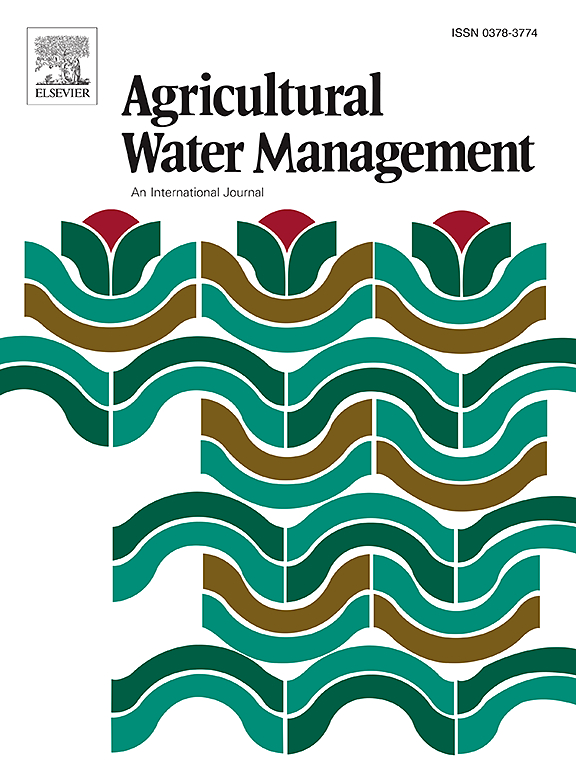气候变化条件下提高灌溉水可及性提高农民农业经营收入的途径
IF 5.9
1区 农林科学
Q1 AGRONOMY
引用次数: 0
摘要
在全球气候变化的背景下,改善干旱高原地区的灌溉水可及性(IWA)已成为提高偏远和经济弱势农民收入和促进繁荣的必要先决条件。本研究主要考察了灌溉水可及性对农民农业经营收入(FAOI)的影响,并阐明了这种影响的潜在机制,利用对代表性干旱高原地区农民的调查数据进行实证分析。结果表明:第一,提高IWA显著有助于提高FAOI,且对种植业收入增长的影响比畜牧业更显著。同时,IWA的改善产生了溢出效应和规范效应,通过提高农业生产效率和单位面积粮食产量来推动收入增长,并激励农民采取包括土壤管理、水资源管理、农场管理和作物管理在内的气候变化适应战略。②交通可达性对IWA与FAOI的关系起调节作用,公路和高铁可达性表现为负向调节作用,乡镇和县可达性表现为u型调节作用。第三,改进IWA有效促进了低碎片化、高农业依存度的FAOI。研究结果对发展中国家相对欠发达地区具有重要的现实意义,主张因地制宜,有针对性地推进农田水利设施和交通基础设施建设。本文章由计算机程序翻译,如有差异,请以英文原文为准。
The Pathways to increase farmers' agricultural operating income by improving irrigation water accessibility amid climate change
Against the backdrop of global climate change, improving irrigation water accessibility (IWA) in arid highland regions has become an essential prerequisite for boosting the income and fostering prosperity among remote and economically disadvantaged farmers.This study primarily examines the impact of irrigation water accessibility on farmers' agricultural operating income (FAOI) and elucidates the underlying mechanisms through which this impact unfolds, utilizing survey data gathered from farmers in representative arid highland regions for empirical analysis.The results indicate that: Firstly, enhancing IWA significantly contributes to increasing FAOI, with a more pronounced effect on income growth in crop farming than in Livestock farming. Concurrently, improved IWA generates spillover and normative effects that drive income growth by elevating agricultural production efficiency and grain yield per unit area, as well as motivating farmers to adopt climate change adaptation strategies encompassing soil management, water resource management, farm management, and crop management. Secondly, transportation accessibility plays a moderating role in the relationship between IWA and FAOI, highway and high-speed rail accessibility exhibit a negative moderating effect, whereas township and county accessibility demonstrate a U-shaped moderating effect. Thirdly, improved IWA has effectively promoted FAOI with low fragmentation, high agricultural dependency.The findings hold significant practical implications for relatively underdeveloped regions in developing countries, advocating for targeted promotion of farmland water conservancy facilities and transportation infrastructure construction based on local conditions.
求助全文
通过发布文献求助,成功后即可免费获取论文全文。
去求助
来源期刊

Agricultural Water Management
农林科学-农艺学
CiteScore
12.10
自引率
14.90%
发文量
648
审稿时长
4.9 months
期刊介绍:
Agricultural Water Management publishes papers of international significance relating to the science, economics, and policy of agricultural water management. In all cases, manuscripts must address implications and provide insight regarding agricultural water management.
 求助内容:
求助内容: 应助结果提醒方式:
应助结果提醒方式:


